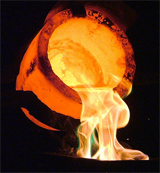By Tumiso Marebane
news24 (South Africa)
 The nationalisation of natural resources has always been a muddy area for any nation’s economic and political waters; mostly because it lacks the clarity of certainty. This area may be considered a pivotal factor for any nation’s economic future, political landscape, and its relations with neighbouring, allied, and direct trading nations. In this article; we’ll take a look at:
The nationalisation of natural resources has always been a muddy area for any nation’s economic and political waters; mostly because it lacks the clarity of certainty. This area may be considered a pivotal factor for any nation’s economic future, political landscape, and its relations with neighbouring, allied, and direct trading nations. In this article; we’ll take a look at:
1. What nationalisation is; the terminology you need to understand and the consequences you need to heed,
2. The nationalisation of natural resources in varied countries in the world,
3. The varied nationalisation methods, supplemented with what they mean for the economic health of South Africa
4. The Conclusion — our analysis and decision on the matter (should SA nationalise?).
Alright then, get the tea ready and let’s dive in.
WHAT IS NATIONALISATION?
Nationalisation is the act of taking private assets or industries into public ownership by a national government or state [1][2]. Let’s try and get a less text book definition shall we: nationalisation is when a nation decides to buy or get more control, and thus ownership of one or more of its major industries (or resources) from the companies involved. Each government has a choice on which industries or assets to nationalise, however; the natural resources, banking, energy, transport, land and agricultural industries have proven quite popular in the history of nationalisation [2][4]. This nationalisation, could be the taking of assets owned by a private entity (company/corporation) or owned by the lower levels of a national government’s structure; like the provincial government or the municipality[2][4].
